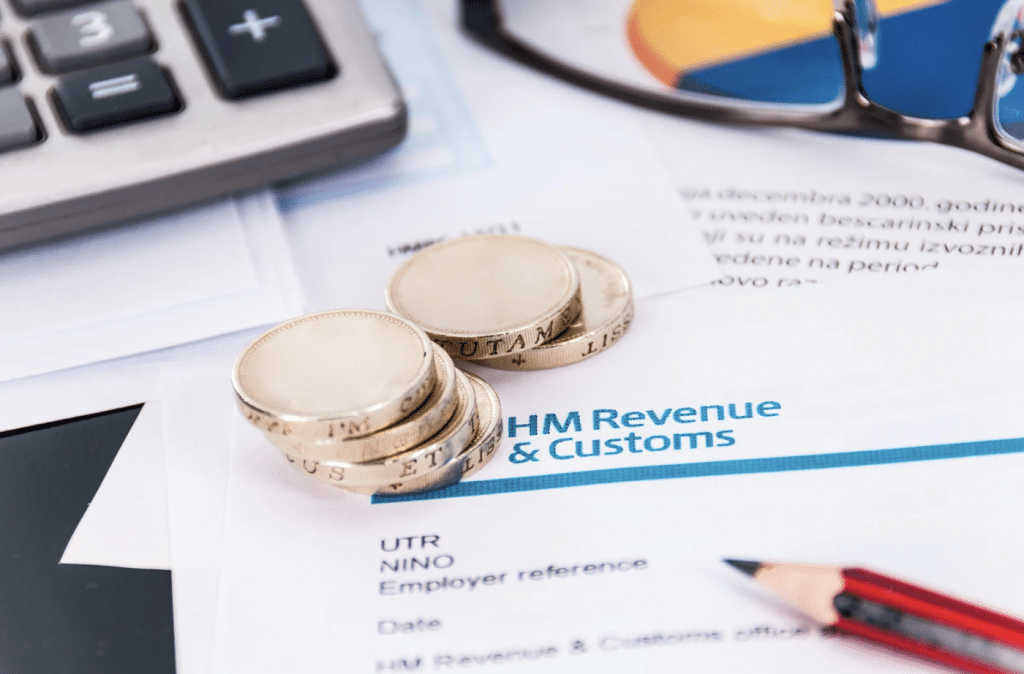Avoid costly expat tax mistakes in the UK. Learn key pitfalls, HMRC rules, and how expert expat tax advisers help you stay compliant and penalty-free.
What this article covers:
- Tax residency myths that still cost people thousands
- The easy oversights when it comes to reporting that can place you knee-deep in years of penalties and interest
- Capital-gains “boomerangs” which leave you liable for UK tax on assets sold overseas
- PAYE coding, National Insurance gaps, IHT blind spots and more
Introduction
Since the Statutory Residence Test (SRT), which arrived in 2013, and then (most recently) Finance Act 2024, which:
- abolished domicile,
- swept away the remittance-basis regime, and
- brought previously shielded assets and income into scope,
UK tax has seemed to become an overnight mine-field for those navigating expat taxes in the UK and UK nationals who are or have been internationally mobile.
However, even though the UK legislation regarding residence is highly complex, it does provide certainty. Therefore common mistakes, which often land unsuspecting taxpayers waist high in unexpected fines and unpaid taxes, can be easily avoided or rectified- when you know what to look out for.
Below we unpack the ten mistakes we see expat taxes clients make most often – and the quick, practical fixes that any expat tax adviser would recommend.Whether you’re new to UK residence or a returning non-dom, understanding your expat taxes early can protect you from years of tax pain.
Table of Contents
- Forgetting the SA109 Residence & Remittance pages when submitting your SA return
- Relying on a simple “183-day rule”
- Triggering CGT on your return – the temporary non-residence trap
- Ignoring worldwide income because it was “taxed abroad”
- Not registering for Self-Assessment
- Paying foreign tax twice by skipping FTCR (foreign tax credit relief)
- Letting PAYE tax codes run on autopilot
- Leaving gaps in your National Insurance record
- Assuming non-dom or “expat” status protects you from UK IHT
- Poor record-keeping – no day count, no defence
Trap No. 1 – Forgetting the SA109 Residence & Remittance pages
UK nationals living abroad often fall foul of this trap. Where you are (or have lived) outside the UK, but have still retained UK source income, it is still necessary to submit a UK self assessment return each year. You need to do this in order to account for the tax due on your UK source income.
Your tax return will ask that you record all your UK income. That might include, for example, earnings from a UK company.
Where you were a non-UK resident, as per the UK statutory residence test rules, you will not be required to pay UK tax on the UK company earning as these earnings are not classed as UK source income (as long as you performed your duties outside the UK). Therefore any PAYE can either be refunded or avoided by collecting the correct tax code from HMRC.
The catch is that HMRC treats you as fully UK-resident if SA109 is missing – even if you only spent two weeks in the country and could not under any circumstances be classed as a UK resident by law!
Quick Wins
- Always attach SA109 when you need to claim non-residence, the Foreign Income & Gains regime or Split-Year Treatment.
- If you e-file, use approved software (you can access this by buying it yourself or using a tax adviser who has the software and is registered with HMRC); HMRC’s own free system still cannot handle SA109 uploads.
- Already filed without it? Amend within 12 months to avoid inaccuracy penalties. Amend within 4 years if the 12 months has been missed.
Trap No. 2 – Relying on a simple “183-day rule”
Many expats cling to the myth that “if I spend fewer than half the year in the UK I’ll be non-resident.” In reality, under Schedule 45 of the Finance Act 2013, the 183-day threshold is only one small part, of one of the three limbs, which make up residency determinations under the Statutory Residence Test.
Most people know that if you spend 183 days or more in the UK in a tax year you automatically become UK-resident, but fewer days doesn’t immediately guarantee non-residence. Unfortunately it’s more complex than that.
The UK statutory residence test as laid out in Schedule 45 of the Finance Act 2013:
- looks back 3 years to determine your residence status in the current year
- defines taxpayers as either ‘arrivers’ or ‘leavers’ and runs different rules for each
- gives you two chances to quickly define your residence based on your previous years residency and day counts, which if failed shunts you into the more complex arena of comparing day counts with ties to the UK
So – for example – to avoid UK residence, as well as having spent less than 6 months in the country, you must also pass one of the Automatic Overseas Tests (for example spend fewer than 16 days in the UK if you were resident in any of the previous three years)…
…or, if you fail both automatic tests, will fall under the Sufficient Ties Test. Here, your residence status depends on the number of days you spent in the UK plus how many of the five UK “ties” you have. There are four ties to the UK with an extra tie if you are an arriver and they are as follows:
- Family tie
- Accommodation tie
- Work tie
- 90 day tie
- Country tie
Even 46 days of presence in the UK can make you resident if you hold four ties and are a leaver, (or just one tie if you were resident in the previous three years).
Expert Tax Tip:
- Get advice from a professional! The rules are complex and interlacing and the definitions are very specific.
Trap No. 3 – Triggering Capital Gains Tax (CGT) on your return to the UK

Gains realised while abroad are clawed back if you come back within five tax years.
Many taxpayers understandably, rely on general rules that say that during time they were not UK resident for tax purposes, then any non-UK assets sold during that time, would also not be liable to UK CGT. This is a common misconception and one that has landed many clients in hot water. Especially when they have sold assets, shortly before returning to the UK in order to try and take advantage of this general rule and escape UK tax on the sale.
In fact there is a UK CGT anti-avoidance provision which catches any overseas gains where the taxpayer has not remained outside of the UK for at least 5 tax years. This is important to look out for when making disposals of overseas assets for example, selling a house, a car or a business.
Sections 1M and 1N of the Taxation of Chargeable Gains Act 1992 (TCGA 1992).
Expert Tax Tips:
- If planning a short overseas stint, postpone large disposals until you have been non-resident for five complete tax years.
- Keep evidence of disposal dates and contract exchange to prove timing.
Mistake No. 4 – Ignoring foreign income because it was “taxed abroad”
Many expats assume that foreign salary, rental income or bank interest “won’t count” once it’s been taxed overseas – but under UK law you must declare worldwide income on your Self Assessment tax return.
As a UK resident taxpayer, you’re taxed on all income as it arises, regardless of source. That means any salary paid by your employer in Canada, rent from a Paris apartment or interest earned on a German savings account, must go into the Foreign pages (SA106) of your Self assessment (SA100) return. Tax already paid on this income is treated as per treaty rules – where there is a double tax treaty in place between the UK and the country you have paid taxes in.
Failure to report foreign income triggers inaccuracy penalties and can prompt a full HMRC enquiry if your overseas earnings surface in cross-border data matches.
Furthermore from 6 April 2025 the old remittance basis rules, which allowed a certain amount of foreign income to be brought into the UK tax-free, give way to the 4-year Foreign Income & Gains (FIG) regime for new UK residents. Under FIG you can elect to pay no UK tax on eligible foreign income and gains for your first four tax years of UK residence. However, if you make this claim: you lose your UK personal allowance and your CGT annual exempt amount, and any foreign income outside FIG eligibility reverts to the arising basis (meaning it is fully taxed under UK law). You can read more about the FIG regime in the Residence & FIG Regime Manual at RFIG20570.
Expert Tax Tips:
- Use the SA106 foreign pages for all overseas income and attach local tax certificates—never leave the section blank.
- Claim the 4-year FIG regime, if relevant to your case, by ticking the appropriate box on your SA100, but run the numbers: you’ll forgo your personal allowance and CGT exemption while the election applies.
- Download HMRC’s “Help with foreign income” guide and follow its step-by-step checklist when filling in your return.
- Maintain a foreign-income tracker in a spreadsheet—record type, amount, local tax paid, FX rate and attach digital copies of certificates.
Mistake No. 5 – Never registering for Self-Assessment just because you work for a UK company / tax has already been paid overseas on your overseas income
Employment under PAYE does not exempt you from a return if you have foreign income, crypto gains, or dividends.
Many expats assume that being taxed through PAYE means there’s no need to file a Self Assessment tax return in the UK. However, as a UK tax resident you are liable to account for tax on your worldwide income, no caveats, no exception! So any overseas rental income, pensions, interest from overseas accounts, capital gains on cryptoassets, or dividends over the £1,000 allowance .. are all liable to UK tax and must be reported on a self assessment tax return. (see Mistake 6 next about how to avoid double taxation!)
Where foreign income or gains exist—even if small—a return is normally going to be required. Even if the double tax treaty means you are not due to pay UK tax, it still has to be reported!
Registration is made via form SA1 or SA109, and must be completed by 5 October following the tax year in question. Failure to register can lead to late filing penalties and interest, even if no extra tax is due.
HMRC’s own language is clear: the responsibility to declare rests with the taxpayer, and not your employer or anyone else.
Expert Tax Tips:
- Use HMRC’s online checker the moment you arrive or depart.
- Register by 5 October following the tax year to avoid £100 late-notification penalties.
Mistake No. 6 – Paying foreign tax twice by skipping Foreign Tax Credit Relief
Many UK resident taxpayers who earn overseas income fail to realise that they can claim Foreign Tax Credit Relief (FTCR) to avoid being taxed twice!
FTCR applies where foreign income or gains have already been taxed abroad and are also due to be taxed in the UK due to a UK residency status. Just by ticking the FTCR box and declaring your foreign tax paid, you can save yourself money on the UK tax liability.
Leaving the FTCR box blank can cost thousands in unnecessary UK tax, because it means HMRC will assume no relief is due, even if foreign tax was paid!
This can result in expats paying the full UK tax liability in addition to foreign tax already deducted—effectively taxing the same income twice.
HMRC makes clear that if a claim is not made in time, credit may be denied, with no option to backdate it! Which means this relief can be lost for good if it is not claimed in the correct tax year!
Expert Tax Tips:
- Claim relief up to the lower of the foreign tax paid and the UK tax due by ticking the FTRC box on your tax return.
- Keep a spreadsheet matching each overseas income item to the relevant tax voucher.
Mistake No. 7 – Letting PAYE tax codes run on autopilot
One in three workers have an incorrect tax code, meaning that they are overpaying their tax each month.
HMRC operates tax codes to estimate how much tax should be collected from employment income. However, tax codes are only as accurate as the information HMRC holds, and errors can easily occur —especially for expats with multiple income sources or mid-year arrivals or departures.
You may be working under an incorrect code from unreported benefits, job changes, foreign income, or claims for allowances.
HMRC does not automatically adjust for all circumstances, because they are happy to wait until later years to see whether tax codes were incorrect and either ask for more tax at that point, or issue a refund. However, that could leave you in a situation where you are either over-paying on tax each month, or setting yourself up for a future unexpected tax bill. To avoid this, it is left to taxpayers to proactively check their tax code. You can find your tax code on your payslip or through your personal tax account.
Expert Tax Tips:
- Check your code in the HMRC app after every job change or benefit update.
- If you have overpaid, claim online; refunds typically appear within five working days.
Mistake No. 8 – Leaving gaps in your National Insurance record

Missing just one qualifying year can cut your State Pension by £2,592 per year for life.
To qualify for the full new UK State Pension, you need 35 qualifying years of National Insurance (NI) contributions. For any State Pension entitlement at all, a minimum of 10 qualifying years is required.
The new state pension currently pays £230.25 per week and the basic state pension currently pays £176.45 per week.
Therefore just one missing year of paid UK NICs can later reduce your pension by around £2,592 per year, meaning a small gap now can cost thousands over a lifetime.
Few people understand that if you leave UK employment and continue working abroad, if you want to keep your pension contributions going, you may be eligible to pay Class 2 voluntary NICs, which are significantly cheaper than Class 3 contributions at £3.45 vs £17.45 per week in 2024/25!
However, Class 2 voluntary contributions are only available to those who register while still working abroad and meeting certain eligibility rules.
Many clients find this out too late, did not claim and are stuck with paying NICs at a much higher rate per month in order to preserve their UK pension rights.
You can also check the government website for further guidance here: https://www.gov.uk/pay-class-2-national-insurance
Expert Tax Tips:
- Order a free NI record from HMRC before each overseas assignment.
- Pay Class 2 (or 3) voluntary contributions within the six-year deadline if it boosts ROI.
Mistake No. 9 – Assuming non-domicile or “expat” status shields you from UK IHT
From 6 April 2025 the deemed-domicile rules are gone; long-term residents pay IHT on worldwide assets.
From 6 April 2025, the longstanding domicile-based IHT system has been completely abolished, and everything has switched over to a residence basis of taxation. This means that being a non-UK domiciliary, no longer offers Inheritance tax exemption on worldwide assets in the first 15 years of UK residence.
Now, the key test is whether you qualify as a “long‑term UK resident”. For many non-UK nationals who have been living in the UK for some years, this means that residence determinations should be obtained as soon as possible in order to find out whether the new residence trap is approaching or has already passed!
For real-world expats, this shift means long-term planning is essential: you can’t rely on outdated non-dom rules to protect foreign assets from UK IHT any longer.
Expert Tax Tips:
- Pay attention to any overseas assets you own and see whether the option to re-base applies and also be mindful of any excluded overseas property trusts; as some planning windows close in 2025/26.
- Ensure you are absolutely sure of your residence status year by year if you have been living in the UK for some years.
Trap No. 10 – Poor record-keeping: no day count, no defence
HMRC compliance teams now ask for boarding passes, calendars and phone logs in residence enquiries.
Goodness help anyone who gets caught up in an HMRC inquiry looking back 6 years or more and needs to prove their residency if they haven’t kept watertight records!
The UK Statutory Residence Test (SRT), hinges on precise numbers of UK days and ties and the law says that it is the taxpayer’s responsibility to demonstrate where they were and for how long.
In compliance checks, HMRC routinely asks for boarding passes, travel itineraries, bank and mobile phone records, calendar entries, and even social media evidence to verify claims.
Failure to provide clear proof can lead to HMRC concluding that you were resident by default, triggering full UK tax liabilities on worldwide income and gains going back years!
There is no legal presumption of non-residence simply because you believe you were “mostly abroad.”
If you intend to rely on the SRT to protect your tax position, you must maintain contemporaneous, verifiable records—especially if you’re close to the day limits. Without them, your credibility—and your claim—may collapse under HMRC scrutiny.
Expert Tax Tips:
- Keep digital copies of tickets, passports and visa stamps in a cloud folder named by tax year.
- Use a geo-tagged diary app (or even Google Timeline) as secondary evidence.
The Takeaway
Remote working, post-pandemic travel patterns and the 2025 tax overhaul, mean the classic expat pitfalls have evolved – but paperwork, day counting and form-filling still cause the lion’s share of HMRC headaches. Stay methodical, keep evidence and review your position every April 6.
Need tailored tax help?
Understanding the UK tax system can be tricky, especially as an expat. Without the right planning, your estate or inheritance could face unexpected costs.
We’re here to relieve tax compliance stress by providing one-on-one tax assistance tailored to your unique situation and tax planning goals. Giving you complete peace of mind and helping you save money, our award-winning tax consultancy network is on hand to help.
Book a consultation with Expat Taxes today for clear, personalised advice, tailored to your situation.
DISCLAIMER:
The material in this article is for general information purposes only and does not constitute legal or taxation advice. Legal, financial, investment and taxation advice should be sought before acting or refraining from acting. All information and taxation rules are subject to change without notice. Expattaxes.co.uk Limited (hereafter ‘the parties’) accept no liability for any action taken based on the information in this article or any of the articles on this website.
Written by Venita Machnicki, CTA (UK), ATT
Venita is a Chartered Tax Adviser with over 15 years of experience specialising in UK and international tax. She is a trusted expert in cross-border tax matters for globally mobile individuals, expats, and business owners. Venita combines deep technical knowledge with a practical, client-focused approach to help people navigate the complexities of UK tax while living and working overseas.






